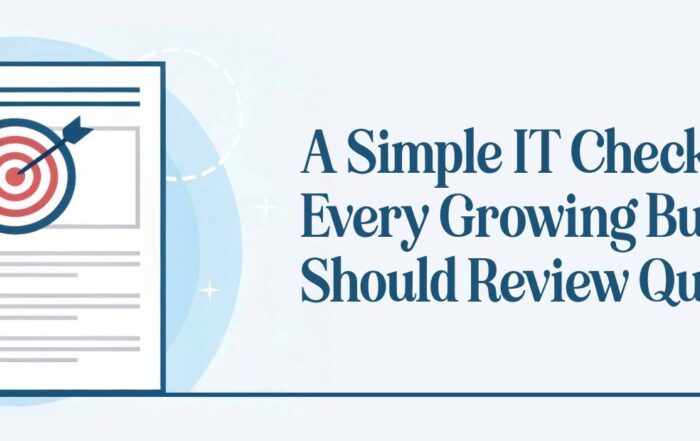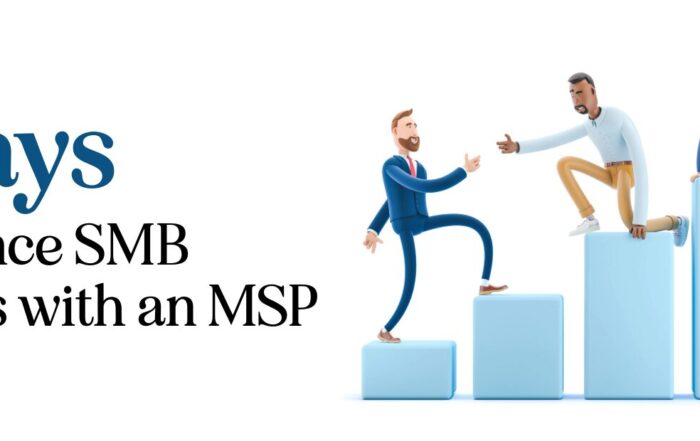Big Changes Are Coming! DMARC Email Security February 2024
Email communication security has become a top priority, especially for businesses, as leading email providers like Gmail and Yahoo are tightening their authentication measures. With billions of phishing emails sent daily across the globe, organizations must take necessary steps to ensure their emails are authenticated and recipients can trust the source. This helps prevent cybercriminals from utilizing fake email addresses to target your business and ensures the smooth functioning of regular business communications.
Understanding the role of DMARC, DKIM, and SPF records in email authentication is crucial for optimal business email communication. Although you may not need to grasp the technicalities, it is necessary to know that these measures utilize DNS records and cryptographic signatures to guarantee your emails reach their intended recipients without being flagged as spam or malicious. With increased tracking of complaints and tighter email restrictions, it is in your best interest to work with an experienced IT service provider like Colorado Computer Support to implement these measures.
Key Takeaways
- Email authentication is crucial for businesses to ensure secure and legitimate communication.
- DMARC, DKIM, and SPF records play a significant role in strengthening email authentication.
- Partnering with an experienced IT service provider like Colorado Computer Support can help you implement these measures and enhance your cybersecurity.
The Crucial Role of Email Authentication
With the recent tightening of security measures by major email providers like Yahoo and Gmail, it has become extremely important for businesses to authenticate their emails. Email authentication ensures that the recipients know who the emails are coming from, eliminating the risk of spoofed or fake emails.
A staggering 3 billion phishing emails are sent daily across the globe. By authenticating your emails, you can prevent such fraudulent messages from infiltrating your inbox and protect your business from potential damages.
If your business relies on sending out large volumes of emails using tools like MailChimp or HubSpot, it is crucial to implement authentication protocols such as DMARC (Domain-based Message Authentication, Reporting, and Conformance), DKIM (DomainKeys Identified Mail) and SPF (Sender Policy Framework).
- DMARC aligns your SPF and DKIM records, creating a solid authentication framework.
- DKIM uses cryptographic signatures to ensure that your emails from third-party tools are legitimate.
- SPF confirms that the IP address matches your domain and mail server.
These protocols are applied to your DNS (Domain Name System) records, which can be a bit complex to set up. Legitimate email providers like Microsoft or Google can assist you with this process for your domain. If these providers host your business email, they will have already taken care of authentication for you.
To ensure that your emails reach the desired recipients and don’t get flagged or bounced, take the following steps:
- Contact your email provider (Microsoft, Google, GoDaddy, etc.) for guidance on email authentication.
- Include an “unsubscribe” option in your emails, allowing recipients to opt-out.
- Send relevant and legitimate content so your recipients don’t mark your emails as spam.
Consult your IT department or managed service provider if you require additional assistance. They can help you implement email authentication and alleviate concerns about your emails not reaching their intended mailboxes. Remember, proper email authentication is crucial for your business. Embrace these measures and maintain a strong reputation with your clients and customers.


Overview of DMARC, DKIM, and SPF
This month, email services such as Yahoo and Gmail, along with other spam filters, have tightened up their security measures for inbound emails through DMARC, DKIM, and SPF records. These changes demand that companies authenticate their emails, ensuring receivers can identify the source.
- DMARC stands for Domain-based Message Authentication Reporting and Conformance. This method aligns your SPF and DKIM records. It serves as the framework behind email authentication.
- DKIM is the Domain Keys Identified Email. It functions through cryptographic signatures to certify emails sent from third-party services such as MailChimp while using your email address as legitimate.
- SPF stands for Sender Policy Framework. This method verifies that the IP address aligning with your email domain matches your mail server.
These three key components are entered into your DNS (Domain Name System) records, which act as the Yellow Pages for the internet. Setting up these authentication measures is not as simple as it used to be. Although it can be complex, legitimate mail servers like Microsoft and Google can help you set up these safeguards.
When using personalized email addresses associated with your domain, such as yourname@yourcompany.com, you should ensure these security measures are in place, especially when sending through third-party services like MailChimp.
If you are concerned about bounced emails or emails not reaching your customers, contact your email provider, IT department, or managed service provider (MSP) for assistance navigating these security updates. They will help guide you and ensure your authenticated emails reach their intended recipients.
Consequences of Poor Email Authentication
As email security measures are tightening up, especially with Yahoo and Gmail, businesses must ensure proper authentication of their emails. Failing to do so can result in significant consequences, impacting your business and customers. Here are a few of the repercussions that can occur due to poor email authentication:
- Increased spam and phishing emails: With billions of phishing emails being sent out daily, unauthenticated emails can easily get lost or wrongly classified, causing businesses and customers to miss out on important correspondence and allowing malicious emails to reach inboxes.
- Bounced emails: Emails that lack proper authentication may be blocked by spam filters and email service providers, preventing your messages from reaching the intended recipients. This could lead to missed opportunities, lost customers, and a damaged reputation.
- Complaint tracking: Failing to include unsubscribe links or sending out illegitimate content can lead to an increase in complaints from recipients, something that email service providers are watching closely. A high number of complaints can further tarnish your company’s reputation and may lead to stricter monitoring or even blacklisting.
To avoid these negative consequences, it’s crucial to implement proper email authentication measures, such as Domain-based Message Authentication, Reporting & Conformance (DMARC), DomainKeys Identified Mail (DKIM), and Sender Policy Framework (SPF). Incorporating these protocols can help authenticate your business emails, prevent spam and phishing emails from reaching your customers’ inboxes, and ensure that your important messages are delivered as intended.
Remember, while you may not need to know the technical intricacies of these protocols, enlisting the help of your email service provider, IT department, or managed service provider can ensure that your business is compliant and protected. This way, you can avoid the negative consequences of poor email authentication and focus on fostering strong relationships with your customers.
The Significance of DNS Records in Email Authentication
DNS records have become crucial in email security, particularly with the rising concerns about spoofed emails and phishing attempts. To combat this, email service providers are increasingly tightening their security measures, especially concerning DMARC, DKIM, and SPF records. These additional layers of email authentication are vital to the security of both sender and receiver, ensuring that your emails are genuine and arrive in the intended mailboxes.
Businesses need to authenticate their emails to gain the trust of receivers. Here’s a breakdown of the functions of DMARC, DKIM, and SPF records:
- DMARC (Domain-based Message Authentication, Reporting, and Conformance) is the overarching authentication framework that aligns your SPF and DKIM records. It helps prevent unauthorized use of your domain in email communications.
- DKIM (Domain Keys Identified Mail) uses cryptographic signatures to confirm the legitimacy of emails. This way, email recipients know your messages are genuine, regardless of the email provider used.
- SPF (Sender Policy Framework) ensures that the sender’s IP address matches the domain and mail server. This prevents unauthorized parties from using your domain to send emails.
These records are added to your DNS, which acts as the internet’s phonebook, associating your domain to specific IP addresses. However, unlike the simpler DNS records that direct traffic to web servers, managing DMARC, DKIM, and SPF is complex and often requires assistance.
Fortunately, if you’re using major email services like Microsoft or Google, they can help you set up these records. If you’re using another provider, reach out to them for guidance. It’s crucial to involve your IT department or managed services provider in implementing these records for maximum security. If you’re experiencing issues with email deliverability, don’t hesitate to reach out for help. Your IT department, managed services provider, or email provider can provide the necessary support to ensure your email reaches the right mailboxes.
Remember, taking action now to secure your emails with DNS records will save you from future headaches caused by undelivered or spoofed emails. Stay proactive and take the necessary steps to protect your communication channels.
How to Implement Authentication Measures
To enhance the security of your emails and ensure they reach their intended recipients, you must authenticate them. Here are some steps to follow:
- Understand the key authentication technologies: Familiarize yourself with the main email authentication methods, including DMARC (Domain-based Message Authentication, Reporting & Conformance), DKIM (Domain Keys Identified Mail), and SPF (Sender Policy Framework). DMARC aligns your SPF and DKIM protocols, while DKIM verifies email authenticity using cryptographic signatures. SPF checks if the IP address corresponds to your mail server and domain.
- Update your DNS records: These authentication methods are added to your DNS (Domain Name System) record. Though more complex than traditional DNS records, the major email providers (Microsoft, Google, etc.) can guide you through the process.
- Reach out to your email provider or IT department: If you are using an email address from your company domain (e.g., your_name@your_company.com), contact your email provider, IT department, or managed service provider for assistance in implementing these authentication measures.
- Ensure compliance with regulations and best practices: Ensure your email content complies with relevant regulations and adheres to proper email marketing practices. This includes adding an “unsubscribe” option and avoiding spammy content.
How Colorado Computer Support Can Help With All Your Cybersecurity Needs
In light of recent changes in email security and spam filters, especially for Gmail and Yahoo, businesses must authenticate their emails. Colorado Computer Support is here to assist you and address your cybersecurity needs.
To improve email security, Domain-based Message Authentication, Reporting, and Conformance (DMARC), DomainKeys Identified Mail (DKIM), and Sender Policy Framework (SPF) records are being implemented more strictly. This aims to prevent the billions of daily phishing and spam emails requiring authentication.
These authentication measures are essential if your business sends bulk emails using tools like MailChimp, HubSpot, or CRM tools. They ensure that your emails are legitimate, preventing your messages from being marked as spam or not reaching your customers.
Here’s a brief rundown of the three measures you need to familiarize yourself with:
- DMARC: Aligns your SPF and DKIM and serves as the framework behind email authentication.
- DKIM: Uses cryptographic signatures to verify that messages sent with your email address are legitimate.
- SPF: Ensures the IP address matches your domain and mail server, preventing spoofed emails.
Setting up these measures can be complicated, and it’s essential to have an expert like Colorado Computer Support on your side to guide you through. We can help you navigate the process and ensure your email system meets security standards.
If your emails are bouncing or not reaching your customers, contact your email provider, IT department, or Managed Service Provider for assistance. Colorado Computer Support is here to address these concerns and help you secure your email communications.
For help with your cybersecurity needs, contact Colorado Computer Support at www.coloradosupport.com or (719) 355-2440. Our team of experts is ready to assist you in implementing the necessary cybersecurity measures and ensuring your emails reach their intended recipients. Don’t let email security concerns hold your business back – let us help you today!
Latest Blog Posts
Quarterly IT Checklist SMBs Should Review in 2026
Quarterly IT Checklist SMBs Need to Stay in Control A quarterly IT checklist SMBs can [...]
AI Safety for Employees: A Beginner’s Guide to Responsible AI Use
AI Safety for Employees Starts With Clear Guidance AI is no longer a future technology. [...]
5 Real AI Use Cases for Small Medical, Legal, and Accounting Firms
SMB AI Use Cases Are Transforming Professional Service Firms Small professional service firms face pressure [...]
How to Create a Business Continuity Plan That Works
Introduction Every business faces unexpected disruptions — from power outages and cyberattacks to natural disasters. [...]
5 Ways to Enhance SMB Business with an MSP
Introduction Small and medium-sized businesses face more technology pressure than ever. Cybersecurity risks, cloud adoption, [...]
How to Secure Your Business Before the Holiday Season
The holiday business security guide is essential for every small and medium-sized business preparing for [...]











